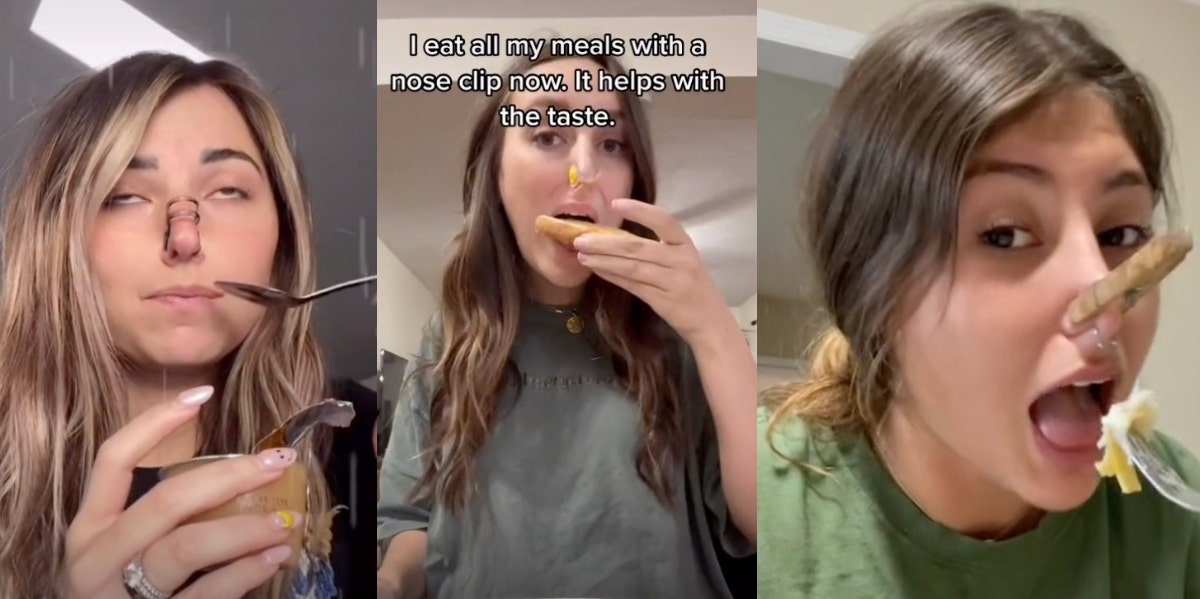People Who Survived COVID-19 Say Food Tastes Like 'Sewage' Due To Unusual Lasting Symptom
Yuck!
 TikTok
TikTok After having struggled through the COVID-19 pandemic, people know one of the most common symptoms is the loss of smell and taste.
While things could be worse, the joy of enjoying and relishing food or drinks is nothing to undermine.
However, for some who are still suffering from long COVID, regaining their loss of smell came with a new problem.
Some people are experiencing parosmia which is just as bad as loosing the sense of smell, maybe even worse. For these people, food tastes rotten, some have even compared it to sewage.
Why does food taste rotten after having COVID-19?
Parosmia is a condition where one's sense of smell is altered. They can still smell things but in a different way. What is normally considered as a pleasant smell may be a bad smell to them.
One mother of a boy who recovered from COVID-19 says, "He said food tasted like sewage and poo and water tasted like rotten eggs, and he would keep throwing up. It wasn't just food. It was supermarkets, the smell of cars going past it all made him retch. I didn't know what to do or what it was."
Sense of smell is quite important as smell and taste are related, it can affect people’s diet and eating habits. A sense of smell is crucial in other aspects as well.
As Richard Orlandi, MD, a physician and professor at the University of Utah says, “It’s what helps you enjoy food and sense danger, as in the case of smoke. It’s connected to our memories, such as the way your mom or grandma’s perfume smells. Depending on the severity, this condition can range from an annoyance to a frustrating and anxiety-inducing symptom.”
Without an accurate sense of smell, people may struggle to eat their food due to the connection between taste and smell.
COVID-19 can damage smell receptors.
While it is still unknown as to why Parosmia occurs, one of the possibilities could be that the nerves or receptors used for smell in the nose are impaired by the coronavirus.
These receptors are known to carry signals to the brain and, because there are over 300 receptors, it would take a while for them to get back to normal.
Parosmia doesn’t happen to all who have had COVID-19, however, it is still a common symptom for recovered people.
It is more likely to affect people who had a loss of smell and taste during COVID-19. Each person has a different reaction but it is said that some strong-smelling foods can trigger parosmia like coffee, garlic, eggs, or onions.
Parosmia cures on itself over time.
COVID-19 and its underlying symptoms and side effects are still under research, so new information keeps coming up regularly. But as of now, there is no cure or treatment for Parosmia.
It is assumed to go away on its own.
There isn’t a certain period of time for recovery as some people may experience it for weeks while others may experience it for a longer time. It’s even possible that certain people may not smell certain things the same way again.
However, there are some things people could do on their own to improve their condition.
One way is making dietary changes such as avoiding certain smells and foods that are triggering or eating bland foods. Smell training is another way to naturally regain a sense of smell. It is a method that requires smelling a certain number of scents every day.
Sanika Nalgirkar, M.F.A. is a writer and an Editorial Intern at YourTango who writes on entertainment & news, lifestyle, and pop culture topics.

